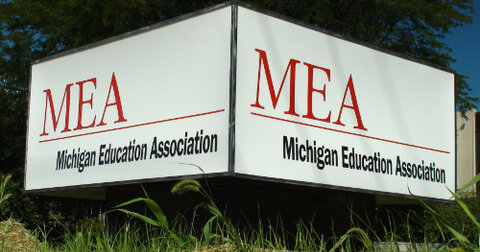Inaccurate Claims Buoy Attacks On Charter Public Schools
'There is no such thing as a "for-profit" charter school in Michigan'
Comstock Public Schools privatized janitorial services with a for-profit company in 2009. Yet Todd Mora, the superintendent of the district, opposed charter public schools in a letter to a newspaper that criticized some charter schools as being “for profit.”
Charter public schools in Michigan are increasingly under attack for hiring “for-profit” management companies to run their schools.
State Sen. Rebekah Warren, D-Ann Arbor, sponsored a bill that would amend the state Constitution to prohibit public schools from being operated on a for-profit basis or by a for-profit entity.
But some question why conventional public schools can use “for-profit” companies for things such as hiring substitute teachers, janitorial and other services yet attack charter schools for doing the same thing.
“School furniture and textbooks are purchased from for-profit companies. Schools are built by for-profit companies. Classroom supplies come from for-profit companies. School attorneys and auditing firms are for-profit,” said Joe Lehman, president of the Mackinac Center for Public Policy, in an email. “Is she saying the schools should just not buy any of these things either? Or is she saying that government needs to have its own book factories, furniture factories, construction crews, etc.?”
The Mackinac Center's 2011 school privatization survey found that more than half of Michigan's public school districts (53.6 percent) contract out for custodial, food or transportation services.
Contrary to some media reports, charter schools are “nonprofits,” just like conventional public school districts, according to one state education official.
“There is no such thing as a ‘for-profit’ charter school in Michigan,” said Martin Ackley, spokesman for the Michigan Department of Education, in an email. “Public School Academies are public schools by state law, and state law requires all public schools to be nonprofits. There are, however, for-profit companies that are contracted to operate charters under the oversight and direction of nonprofit Public School Academy boards.”
Eighty percent of the state’s 259 charter schools contract out for instructional or noninstructional services, according to Gary Naeyaert, spokesman for The Center for Charter Schools at Central Michigan University.
“Ask a traditional school district, ‘Why is okay to contract bus, janitorial and food services but it’s not okay to contract instructional services?' The real answer is the union won’t like it,” Naeyaert said.
Also, the charter schools that hire for-profit management companies aren’t mandated to have teachers join a teacher’s union. Naeyaert said Central Michigan University authorizes 56 charter schools and he’s aware of only one that has unionized teachers.
Michigan Capitol Confidential is the news source produced by the Mackinac Center for Public Policy. Michigan Capitol Confidential reports with a free-market news perspective.


 Member of state ed board called for ending charter schools
Member of state ed board called for ending charter schools
 In Detroit schools, nothing succeeds like failure
In Detroit schools, nothing succeeds like failure
 Charter school advocate says state education board accusations inaccurate
Charter school advocate says state education board accusations inaccurate
